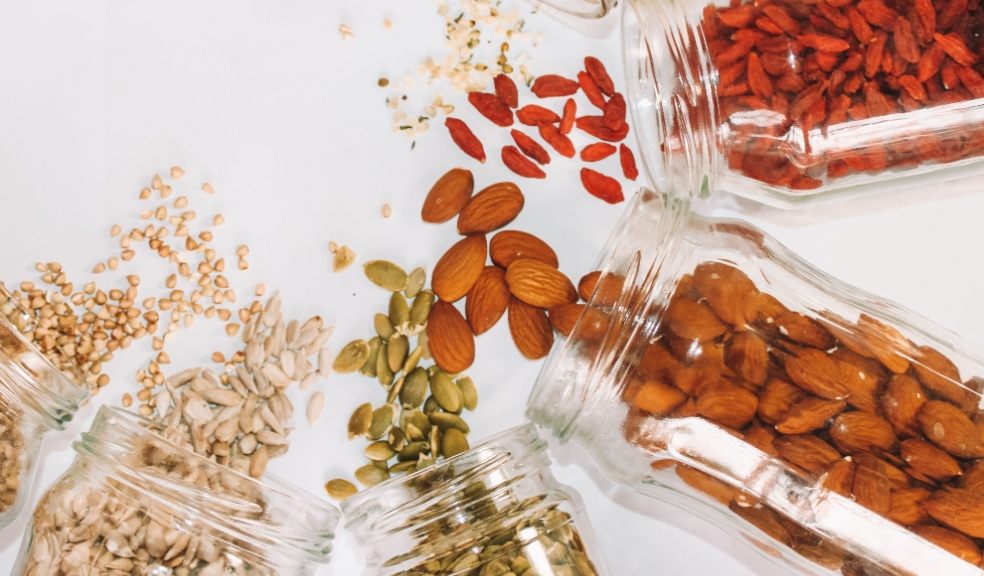
Five foods you didn't know could ease menopause symptoms
From hot flushes to bloating, sleep disturbance to night sweats, it’s estimated that 8 in 10 peri-menopausal, menopausal and post-menopausal women experience symptoms that significantly impact their daily lives. But with increasing shortages of hormone replacement therapies across the UK, with many women having to move away from their usual treatments to ones that are available, attention is shifting to find ways to manage difficult symptoms at home that can work in synergy with prescribed treatments.
Nutritionist and 44 Foods partner Emma Ellice-Flint specialises in helping women through the menopause through their diet, creating recipes that nourish, heal and help to balance hormones, which can help to ease some of the most common symptoms. We caught up with Emma to find out more about some of her top menopause friendly foods that could not only help to make you feel happier and healthier but they’re delicious too!
Vitamin C
“There’s a reason that the humble vitamin C is known to be great for everything from skin health to hormone health. That’s because it benefits so many different actions in our bodies.
“But importantly it doesn’t work in isolation. In nature Vitamin C is found in all plant based foods that also contain phytonutrients, which can help to boost your immune system - something that can take a bit of a knock once we start menopause. Some of the best sources are red peppers, pomegranate, plum, brussels sprouts, kiwi fruit, blackcurrants/blueberries, cabbage, broccoli and oranges.”
Fermented foods
“Regularly eating live fermented foods such as kefir and sauerkraut, can help to improve your gut health and its microbiota. From my experience in the clinic, adding fermented foods into your diet can help to reduce bloating and improve your digestion which can both be impacted when we hit the menopause.
“Every fermented food has its own set of healthy bacteria so it’s all about finding ones that suit you. For me, I love mixing a couple of heaped tablespoons of kefir into my breakfast or adding a dollop of sauerkraut to my evening meal to make it easy to integrate it into my diet. However, fermented foods aren’t for everyone, and should be avoided by those with an intolerance to histamines”
Magnesium rich foods
“Magnesium plays a part in over 300 biochemical reactions in the body contributing to everything from bone health to energy. It is an important mineral to maintain at healthy levels since it can affect mood, sleep and vitality. Plus it is used more in the body during times of stress.
“It is naturally found in foods such as whole grains, green leafy vegetables like spinach and kale as well as muesli, nuts, nuts, legumes and pulses. The NHS recommends an adult woman have 270mg of elemental magnesium per day but it can be tricky to get this amount from food alone so I’d also recommend investing in a high quality magnesium supplement to make sure you’re getting all the nutrients you need.”
Oily fish
“Omega 3, found in oily fish like sardines, salmon and mackerel, is a type of fat that is essential to our bodies. In perimenopause and menopause, these benefits are especially important - supporting gut health, reducing inflammation, and helping with mood and anxiety.
“And, since the body cannot produce its own Omega 3 fats, it has to get them from what we eat so adding some form of oily fish, nuts, seeds or soy into your diet is a great way to keep your Omega 3 levels up.”
Pre-biotics
“Pre-biotics are a fermentable fibre found in plants. While our digestive system struggles to digest them, our intestinal microbiota thrives, making them vital to maintain a healthy gut.
“Examples of my favourite prebiotic-rich foods include: Jerusalem artichokes, rocket, garlic, onion, leek, spring onion, asparagus, beetroot, green peas, mange tout, sweetcorn, cabbage, pulses, nuts, seeds, whole grains, apples and dark berries. Even if you’re not looking to fully overhaul your diet, many common ingredients like onions and garlic can still contribute to your overall gut health which is particularly important during the menopause.”
Emma has recently launched her own range of recipe bundles with ethical online food retailer 44 Foods to make it simpler than ever to recreate some of her most popular recipes. From her zingy ginger stir fry with prawns to a nutrient packed avocado, basil and borlotti beans, each bundle gives you all of the ingredients you need, plus a recipe card.













